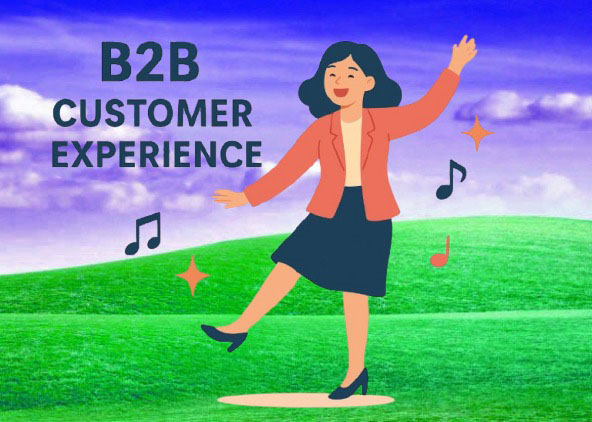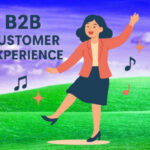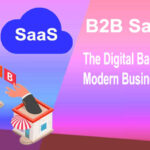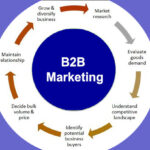
B2B Customer Experience: Redefining Success in Business-to-Business Relationships
In the modern digital economy, customer experience (CX) has emerged as a decisive factor in driving growth, loyalty, and competitive advantage. While most discussions around CX have historically centered on B2C (business-to-consumer) markets, B2B (business-to-business) companies are increasingly realizing that customer experience is just as critical in their domain. The complexity of B2B transactions, the higher stakes involved, and the long-term nature of business relationships make B2B customer experience both challenging and highly rewarding when done right.
This article explores the dynamics of B2B customer experience, why it matters, the unique challenges it presents, and how companies can elevate their approach to achieve long-term success.
What Is B2B Customer Experience?
B2B customer experience (CX) refers to the sum of all interactions and perceptions a business customer has when engaging with another company across the entire customer journey. Unlike B2C, where an individual consumer makes decisions based on emotions, convenience, or price, B2B CX involves multiple stakeholders, extended decision-making processes, and highly personalized service requirements.
In B2B, customer experience is not just about a single transaction; it is about building trust, reliability, and consistency over time. It includes everything from the sales process and onboarding to product performance, customer support, billing, and post-sale engagement.
Why B2B Customer Experience Matters
For B2B companies, delivering excellent CX is no longer optional; it is a strategic imperative. Several factors underline its growing importance:
-
Long-Term Contracts and Higher Value Deals
B2B transactions often involve long-term contracts worth millions of dollars. A poor experience at any stage can jeopardize not just a single sale but an entire relationship. -
Customer Retention is More Profitable
Acquiring new B2B clients is costly and time-intensive. Studies consistently show that retaining an existing client is far more profitable than acquiring a new one. Exceptional customer experience ensures retention. -
Word-of-Mouth and Reputation
In B2B, reputation spreads quickly within industries. Positive experiences lead to referrals and industry recognition, while negative ones can significantly harm brand credibility. -
Rising Expectations from B2C Influence
B2B decision-makers are also B2C consumers in their personal lives. They expect the same level of ease, personalization, and responsiveness in business settings that they enjoy as consumers. -
Differentiation in a Crowded Market
Products and services can be replicated, but a customer-centric culture and consistently superior experience are harder to copy, making CX a sustainable differentiator.
Key Differences Between B2B and B2C Customer Experience
While both B2B and B2C prioritize customer satisfaction, there are notable differences:
-
Decision-Making Process:
B2C usually involves one buyer, while B2B involves multiple stakeholders and committees. -
Sales Cycles:
B2B cycles are longer, with multiple touchpoints. B2C often involves quick decisions. -
Customization Needs:
B2B clients expect tailored solutions, while B2C customers often choose from standardized offerings. -
Relationship Depth:
B2B requires long-term partnerships; B2C focuses more on transactional satisfaction. -
Risk Factor:
B2B decisions carry higher risks, both financially and strategically, requiring greater trust.
Challenges in Delivering B2B Customer Experience
Improving B2B CX comes with unique challenges that companies must overcome:
-
Complex Buyer Journeys
With multiple stakeholders involved, the journey from awareness to purchase can be complicated and fragmented. -
Data Silos
Many B2B organizations struggle to integrate customer data across departments, leading to inconsistent experiences. -
Customization vs. Scalability
Balancing personalized service with scalable operations is a persistent challenge. -
Digital Transformation Barriers
Legacy systems, cultural resistance, and lack of digital skills often slow down CX improvements. -
Measurement Difficulties
Unlike B2C, measuring B2B CX is harder because the metrics are not just about satisfaction but also long-term relationship health and business outcomes.
Pillars of Exceptional B2B Customer Experience
To create outstanding experiences, B2B companies should focus on the following pillars:
1. Deep Customer Understanding
Understanding clients goes beyond knowing their industry. It requires mapping their pain points, goals, decision-making structures, and expectations. Tools like customer journey mapping, persona building, and account-based insights help companies anticipate needs.
2. Seamless Omnichannel Engagement
Business clients expect smooth interactions across all channels—email, phone, live chat, social media, or in-person meetings. Consistency builds confidence and avoids frustration.
3. Proactive Customer Support
Instead of waiting for problems to arise, proactive support anticipates issues. For example, sending reminders about software updates or offering optimization tips before customers ask.
4. Personalization at Scale
Advanced analytics and AI make it possible to tailor solutions, recommendations, and content to individual client needs—even when serving hundreds of accounts.
5. Trust and Transparency
B2B relationships thrive on trust. Clear communication about pricing, delivery timelines, and potential challenges strengthens bonds. Transparency builds long-term credibility.
6. Value Beyond the Product
B2B clients don’t just buy products; they buy solutions to business problems. Providing thought leadership, training, consulting, and industry insights adds value beyond the product itself.
Role of Technology in B2B Customer Experience
Technology plays a transformative role in shaping B2B CX. Some key enablers include:
-
CRM Systems: Centralize customer data and track interactions across teams.
-
AI & Predictive Analytics: Forecast client needs, optimize pricing, and improve personalization.
-
Chatbots and Virtual Assistants: Provide instant responses and streamline support.
-
Customer Feedback Tools: Gather insights in real time and close feedback loops.
-
Collaboration Platforms: Enhance communication between clients and account managers.
Digital transformation is no longer just about efficiency—it is about empowering customers and strengthening partnerships.
Measuring B2B Customer Experience
Since B2B CX is complex, companies must adopt multi-dimensional measurement frameworks:
-
Net Promoter Score (NPS)
Measures likelihood of customers recommending your brand. -
Customer Satisfaction (CSAT)
Tracks satisfaction with specific interactions. -
Customer Effort Score (CES)
Evaluates how easy it is for customers to do business with you. -
Customer Lifetime Value (CLV)
Indicates long-term revenue potential of each relationship. -
Churn and Retention Rates
Measure loyalty and the effectiveness of CX strategies.
By combining quantitative data with qualitative feedback, companies can gain a 360-degree view of their customer experience performance.
Case Studies: B2B CX in Action
1. Salesforce
Salesforce has become a leader not only in CRM solutions but also in customer experience. Their focus on customer success managers (CSMs), user communities, and training resources demonstrates how value-added services strengthen loyalty.
2. IBM
IBM shifted from being a hardware provider to a solutions-driven company. They engage clients with co-creation workshops, thought leadership content, and dedicated account teams, ensuring their clients feel like strategic partners.
3. HubSpot
HubSpot emphasizes customer education, offering free tools, certifications, and extensive resources. This investment in customer empowerment has built strong trust and advocacy.
Future Trends in B2B Customer Experience
The future of B2B CX is being shaped by several emerging trends:
-
Hyper-Personalization
Using AI and advanced analytics to deliver uniquely tailored solutions. -
Customer Success as a Discipline
Moving beyond support to ensuring customers achieve measurable business outcomes. -
Experience-Driven Differentiation
Competing less on product features and more on end-to-end customer journeys. -
Sustainability and Social Responsibility
Clients increasingly prefer partners who align with their ethical and environmental values. -
Integration of Human and Digital Touchpoints
A balanced mix of self-service digital tools and human relationship management.
Building a Customer-Centric B2B Culture
No technology or process can succeed without the right culture. To truly embed customer experience at the core, organizations must:
-
Empower Employees: Frontline staff must be trained and equipped to deliver exceptional service.
-
Break Down Silos: Collaboration across sales, marketing, product, and support ensures a unified experience.
-
Reward CX Success: Incentives should align with customer satisfaction and retention, not just sales numbers.
-
Leadership Commitment: Executives must lead by example, placing CX at the heart of strategy.
Conclusion
B2B customer experience is not just a buzzword—it is the foundation of long-term success in today’s competitive landscape. Unlike B2C, where emotional impulses often dominate, B2B CX is about trust, reliability, value, and partnership. Companies that understand their clients deeply, deliver seamless engagement, leverage technology wisely, and cultivate a customer-first culture will rise above competitors.
As expectations continue to rise, the businesses that thrive will be those that recognize CX not as a department, but as the DNA of their entire organization. In B2B, customer experience is no longer a differentiator—it is the ultimate driver of growth and loyalty.
















